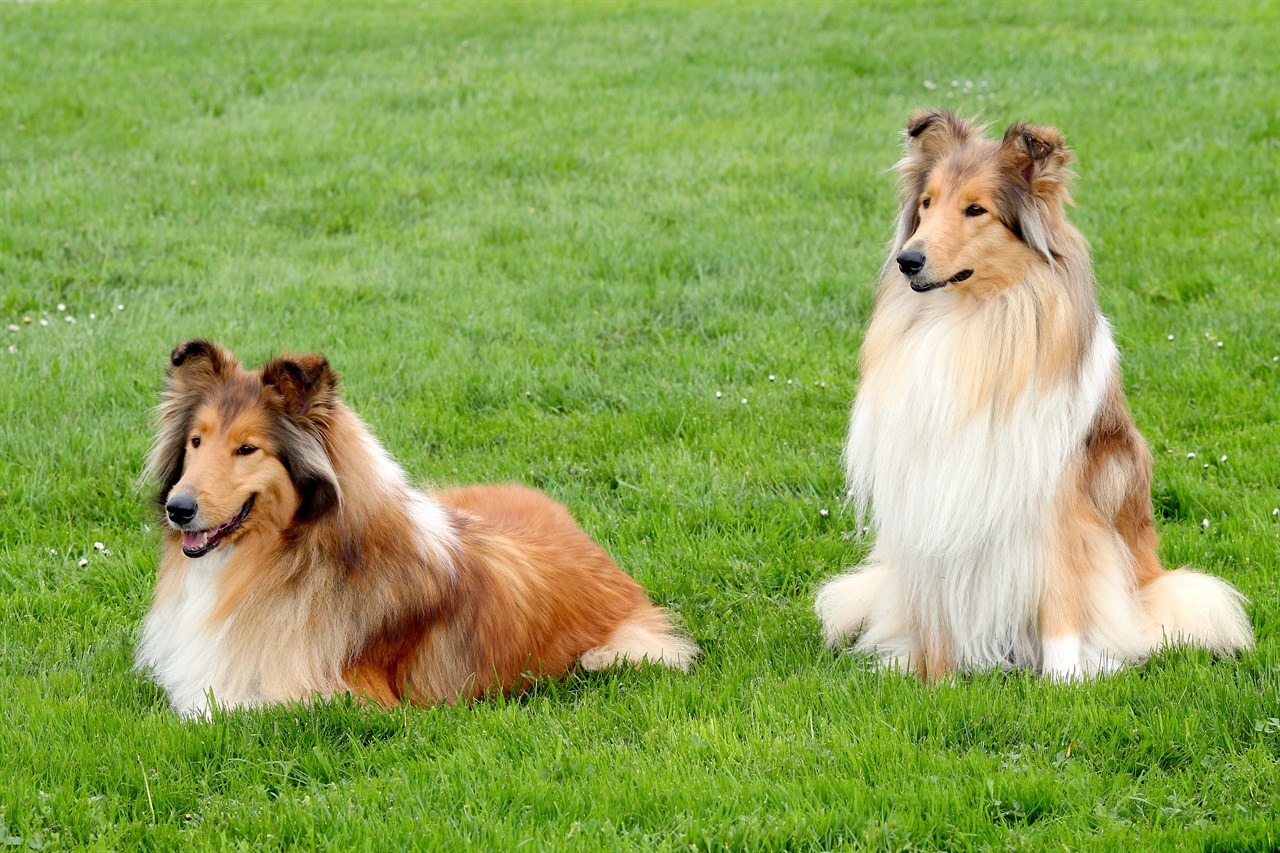Downsides or Disadvantages of Owning a Rough Collie

While Rough Collies are known for their many positive traits, including their intelligence, loyalty, and gentle nature, there are also some downsides or disadvantages to consider when it comes to owning this breed. These factors should be carefully weighed to ensure that a Rough Collie is the right fit for your lifestyle and preferences. Here are some potential drawbacks.
Grooming Requirements: What problems do Rough Collies have in terms of grooming?
- High Maintenance Coat: Rough Collies have a beautiful double coat that requires regular grooming to prevent matting and tangling. Their long fur can easily trap dirt and debris, necessitating frequent brushing.
- Shedding: Collies are moderate to heavy shedders, particularly during seasonal changes. This shedding can result in a significant amount of loose hair around the home.
- Time-Consuming: The grooming process for Rough Collies can be time-consuming, and not all owners may have the patience or time to dedicate to this aspect of care.
Exercise Needs
- High Activity Level: Collies are an active breed that requires daily exercise and mental stimulation. Failing to meet their exercise needs can lead to restlessness and behavioural issues.
- Herding Instinct: Some Collies may retain a strong herding instinct, which can manifest as chasing and nipping at moving objects, including children or other pets.
Separation Anxiety
- Attachment to Owners: Rough Collies are known for their loyalty and attachment to their owners. They can experience separation anxiety when left alone for long periods, which may result in undesirable behaviours such as excessive barking or destructive chewing.
Noise Sensitivity
- Sensitivity to Noise: Collies can be sensitive to loud or sudden noises, which may make them anxious or fearful in noisy environments.
Health Concerns: What problems do Rough Collies have in terms of health?
- Hereditary Health Issues: Rough Collies are prone to certain hereditary health conditions, including hip dysplasia, Collie eye anomaly (CEA), progressive retinal atrophy (PRA), and skin issues like dermatomyositis. Responsible breeding practises aim to reduce the risk of these conditions, but they can still occur.
Barking Tendencies
- Vocal Nature: Collies are a vocal breed and may bark to communicate or alert their owners to changes in their environment. Excessive barking can be a nuisance, particularly in close living quarters.
Socialisation Needs
- Socialisation Requirements: Proper socialisation is essential for Collies to ensure they are well-adjusted and comfortable around people and other animals. Failing to provide adequate socialisation can lead to shyness or fearfulness.
Size and Space
- Size: Rough Collies are medium to large dogs, and their size may not be suitable for small living spaces like apartments. They require enough room to move around comfortably.
Potential Allergies
- Allergies: Some individuals may be sensitive to dog dander or saliva, which can be problematic if you or a family member has allergies.
In summary, while Rough Collies are wonderful dogs with many positive qualities, potential owners should be aware of the grooming demands, exercise needs, potential for separation anxiety, and other considerations associated with this breed. Careful consideration of these factors and a commitment to meeting their needs can help ensure a happy and harmonious relationship with your Rough Collie.
Collie (Rough) puppies for sale
- Find Collie (Rough) puppies for sale in ACT
- Find Collie (Rough) puppies for sale in NSW
- Find Collie (Rough) puppies for sale in NT
- Find Collie (Rough) puppies for sale in QLD
- Find Collie (Rough) puppies for sale in SA
- Find Collie (Rough) puppies for sale in TAS
- Find Collie (Rough) puppies for sale in VIC
- Find Collie (Rough) puppies for sale in WA